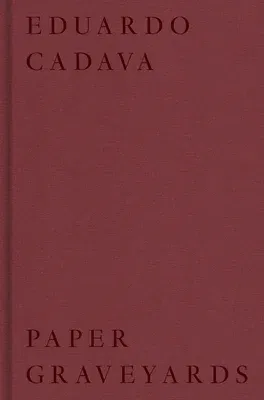A generously illustrated training manual for reading images,
discussing work by Félix Nadar, Roland Barthes, Fazal Sheikh, Susan
Meiselas, and others.
Paper Graveyards is neither a work of traditional art history nor one
of literary criticism. It is not strictly a history of ideas either,
notwithstanding its very obvious erudition. Rather, in drawing upon all
of these methods and approaches--and with extraordinary attention to
language and style--Cadava's writing examines the spectacular explosion
of images during the last twenty years as a prompt to discuss not simply
specific images but the role and place of these images in our everyday
life.
Considering work by Félix Nadar, Roland Barthes, Leon Golub, Nancy
Spero, Fazal Sheikh, Susan Meiselas, and others, Cadava delineates
different modes of reading that, taking their point of departure from
the conviction that the past, the present, and the future are always
bound together, provide us with a training manual of sorts for
understanding visual material in the twenty-first century. In the
process, these generously illustrated essays actively expand our sense
of literacy by reconstructing the networks of relations that inhabit the
plural worlds of images, and create a critical genealogy of what we
still call "an image," even when, with every day that passes, we perhaps
understand less and less what this might mean.

